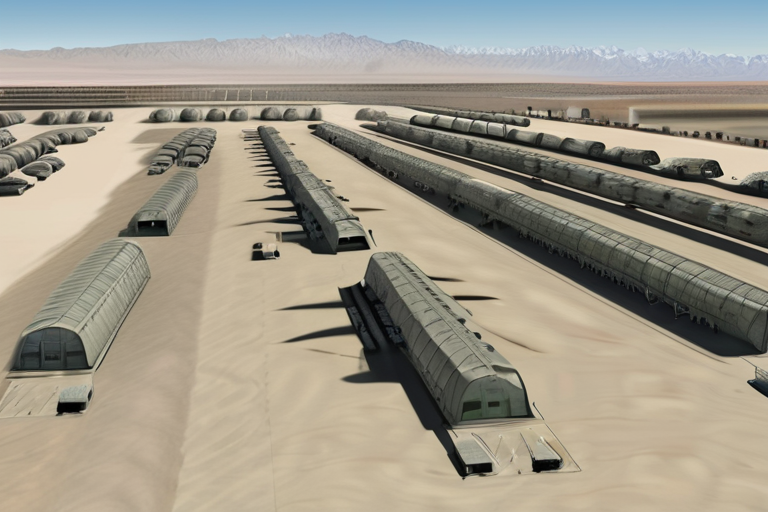Trump Demands Return of Strategic Bagram Airbase from Taliban Control


Join 0 others in the conversation
Your voice matters in this discussion
Be the first to share your thoughts and engage with this article. Your perspective matters!
Discover articles from our community

 Hoppi
Hoppi

 Hoppi
Hoppi

 Hoppi
Hoppi

 Hoppi
Hoppi

 Hoppi
Hoppi

 Hoppi
Hoppi

Trump Warns Afghanistan of "Bad Things" Over Bagram Airbase Dispute In a tweet on Saturday, United States President Donald Trump …

Hoppi

Former Ukrainian Ambassador Speaks Out on Trump's Perceived Pivot on Ukraine-Russia War KIEV, UKRAINE - SEPTEMBER 25, 2025 In a …

Hoppi

President Donald Trump Suggests Reestablishing U.S. Presence at Bagram Air Base in Afghanistan Over China Concerns In a surprise move, …

Hoppi

President Trump Suggests Reestablishing US Presence at Bagram Air Base in Afghanistan Over China Concerns In a surprise move, President …

Hoppi

Taliban Official Dismisses Trump's Hope to Retake Bagram Airbase A Taliban official has rejected the idea of the US retaking …

Hoppi

Breaking News: Trump Suggests US Troops Could Return to Afghanistan Amid Rising China Tensions President Donald Trump has revealed plans …

Hoppi